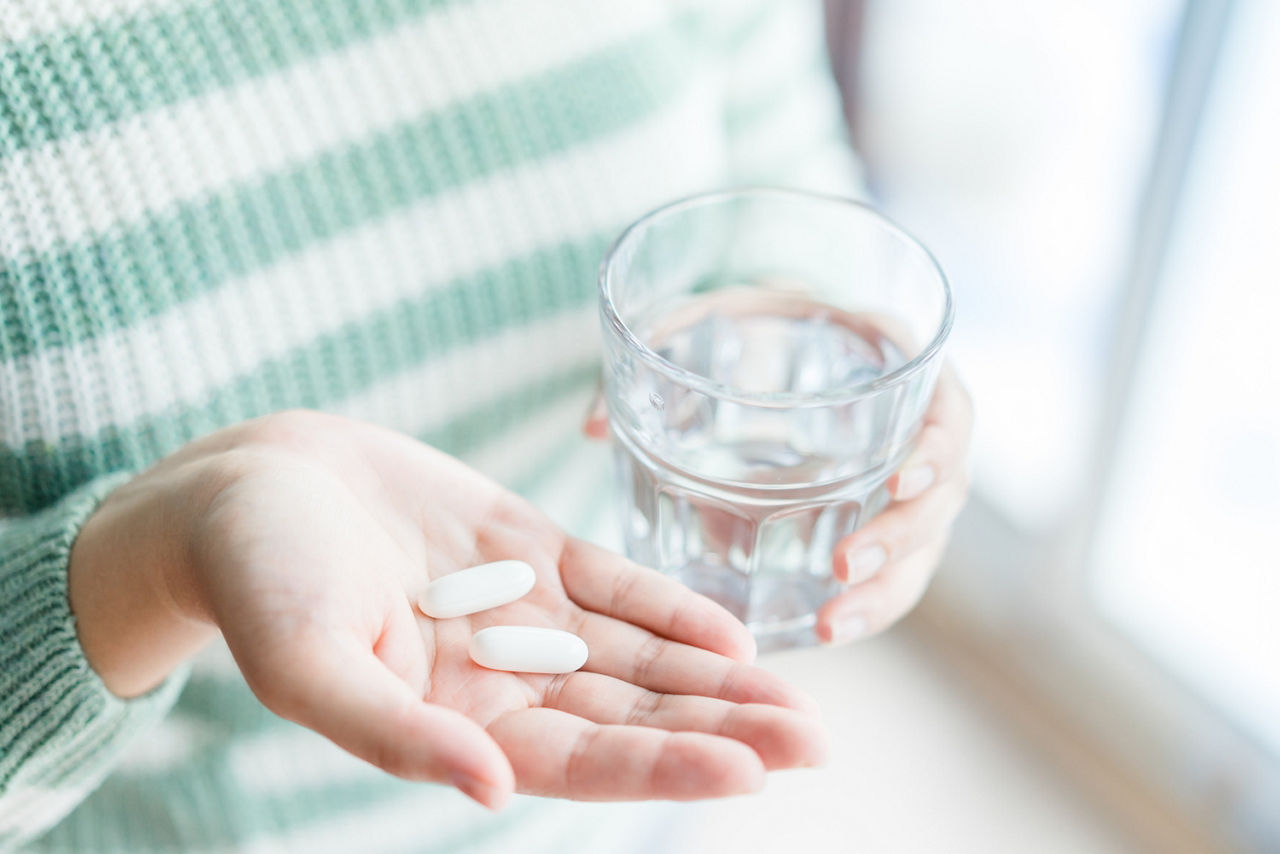Breastmilk is the best for babies. The World Health Organisation recommends exclusive breastfeeding for the first six months of life. Unnecessary introduction of bottle feeding or other food and drinks will have a negative impact on breastfeeding. After six months of age, infants should receive age-appropriate foods while breastfeeding continues for up to two years of age or beyond. Consult your doctor before deciding to use infant formula or if you have difficulty breastfeeding.
- Week 1
- Week 2
- Week 3
- Week 4
- Week 5
- Week 6
- Week 7
- Week 8
- Week 9
- Week 10
- Week 11
- Week 12
- Week 13
- Week 14
- Week 15
- Week 16
- Week 17
- Week 18
- Week 19
- Week 20
- Week 21
- Week 22
- Week 23
- Week 24
- Week 25
- Week 26
- Week 27
- Week 28
- Week 29
- Week 30
- Week 31
- Week 32
- Week 33
- Week 34
- Week 35
- Week 36
- Week 37
- Week 38
- Week 39
- Week 40
Are Vitamins & Supplements Needed During Pregnancy?
Whether we’re pregnant or not, all of us need our daily intake of vitamins and minerals. (NHS) In this guide, find out which nutrients are especially important during pregnancy, and why a balanced pregnancy diet is our best possible source of nutrition.
As parents, we want the best for our children. For some of us, that may mean stocking up on as many prenatal vitamins and supplements as we can! However, did you know that it is best to get vitamins and minerals from the food we eat? A varied, healthy diet will be able to provide you with the nutrients you and your baby require, as well as essential fibre, protein and energy.
Two Essential Prenatal Vitamins
Nonetheless, vitamins and supplements can make a positive impact on your pregnancy. Only two nutritional supplements are recommended during pregnancy: Folic acid and Vitamin D1.
Don’t underestimate the importance of folic acid! It helps prevent neural tube defects such as spina bifida, a condition where the spinal cord fails to properly develop. The World Health Organisation recommends you take 400 mcg per day[1] from conception through to the 12th week of pregnancy1. Folic acid is also recommended while you are trying to get pregnant.
Vitamin D, on the other hand, is critically important for bone development. While you can get Vitamin D for free by being in the sun, you can also consider taking 10 mcg of Vitamin D daily throughout pregnancy and while breastfeeding1.
Ensure your Supplements are Pregnancy-safe
During pregnancy, your nutritional needs tend to change. In fact, some nutrients can be harmful if taken in high doses. Always ensure that you choose supplements that are specifically made for pregnant women! Notify your doctor if you’re taking anything other than prenatal vitamins, such as herbal remedies.
You may consider prenatal supplements if you are experiencing morning sickness. Look for supplements that provide a variety of nutrients to cover any nutritional gaps, especially during early pregnancy. This ensures that you and your baby receive the right balance of nutrients.
What’s in a Prenatal Multivitamin?
Down the pharmacy aisle, you will find several prenatal multivitamins brands to choose from. Though each may offer a different nutrient content, most of them would contain sufficient amounts of the following key nutrients:
• Vitamin D — regulates calcium and phosphate, which contribute to your baby’s developing bones and teeth2
• Folate/folic acid — helps prevent neural tube defects and is recommended until the 12th week of pregnancy1
• Iron — during pregnancy, more iron is needed for the growing foetus and placenta. It also supports the increase of red blood cells in your body. A lack of iron may cause iron-deficiency anaemia1, which may be harmful for you and baby
• Vitamin B12 — helps your body process folic acid and helps release energy from food and from making red blood cells4

Connect with our team of experts
We provide advice and support for you on your parenthood journey




